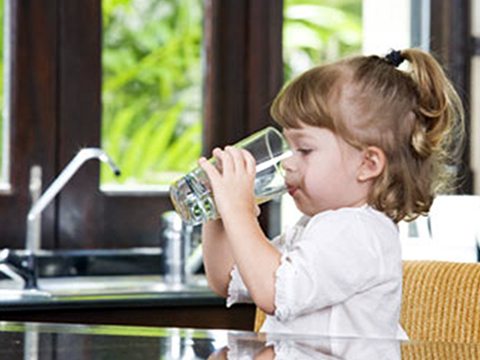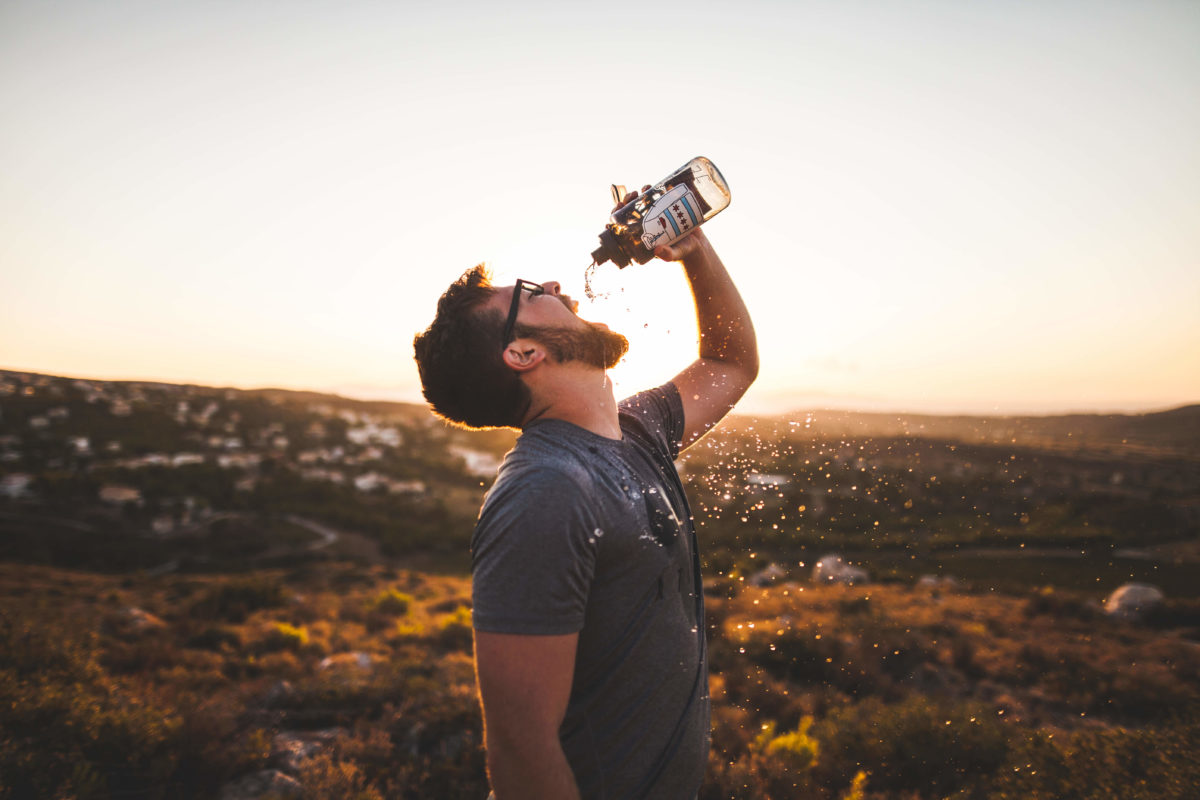Is Bottled Water Really Worth the Cost?

We see it everywhere these days – supermarket shelves, cafe fridges, vending machines in schools and gyms alike. A wide variety of branded water in PET plastic bottles of all sizes. We have been advised by newspapers, celebs, health practitioners, dieticians, sports teams and more that hydration is key to being fit, healthy and productive in these days of greater life stress. The barrage of encouragement to “drink more water” results in many people spending upwards of £500 – £800 per year on bottled water.
Are you worried about the risks of plastic bottled water to you, your family and the environment? There a number of risks and concerns associated with bottled water – for consumers and Planet Earth. One of the cheapest and easiest ways to overcome this is to filter your own water at home, from your own tap.
Whilst municipal water is known to contain certain potentially harmful additives such as chlorine, fluoride, industrial chemicals and hormones – these can be effectively removed with a domestic water filtration system.
You and your family can benefit from healthier water at a fraction of the cost by purifying your tap water at home.
Read on for details on why ditching bottled water will benefit you and your family.
Plastic bottles carry inherent health risks.
Recently there has been significant negativity around plastics being used as food and drink packaging. The resultant waste leads to pollution if not recycled responsibly and effectively, as well as health risks associated with “chemical leaching”. Recent research has found the first evidence of microplastics inside humans, within the digestive system caused by plastic packaging around food and drink. These particles are between 50 and 500 micrometres in width, and the most common were polypropylene (PP) and polyethene terephthalate (PET). Researchers believe that the plastic could damage the immune system and raise the risk of transmission of disease due to the smallest particles potentially entering the bloodstream, lymphatic system and maybe even the liver.
Additionally drinks bottled in plastic (PET) are mass-produced and then transported around the UK and the World. They are shipped on pallets which are then often left outside for days or weeks between shipping from point of production to point of sale. On warm days the water condensates and chemicals in the plastics have been known to leach into the water. Even BPA-free bottles can be affected by high temperatures and sunlight degrading the bottles.
Did you know that it is widely accepted that it takes 3 litres of water and a ¼ litre of oil to produce 1 litre of bottled water? The industrial-scale production of bottled water is very wasteful and over-reliant on natural resources.
Single-use Plastics are Environmentally Disastrous
Plastic water bottles are considered as single-use plastic waste as they are not designed to be reused. These plastics should never be put in a dishwasher or cleaned in hot water as the heat generated will activate the chemicals inside the plastics. They are therefore the epitome of disposable plastic.
The UK has become one of the World’s largest consumer of bottled water, with Londoners drinking more plastic bottled water than anywhere else in the UK. Unfortunately, London also has the worst recycling rates of anywhere in the UK. Subsequently, the plastic litter is found freely around parks, playgrounds, green spaces and the Thames where it is very harmful to marine life and other animals. It even finds its way into our tap water where over 72% of water samples have found plastic fibres within. These can be removed easily via a water purifier at your kitchen tap.
The United Nations Environment Program (UNEP) estimates that according to current pollution rates, there will be more plastic in the sea than fish by 2050. Around 8 million tonnes of plastic bottles and waste fill the oceans each year. UK retailers have already halved the use of plastic bags via the 5p charge whilst multinational corporations like Nestle, Mars, Unilever, Coca-Cola and over 200 others have vowed to cut ALL single-use plastic packaging by 2025. So within 7 years most food and drink-related plastics could be 100% recyclable!
Consumers can change their habits a lot quicker than corporations however by purifying water from your tap at home and taking it with you. Purified water in a reusable BPA-free bottle will be great tasting, healthy, ethical and kind to the environment. Your home-purified water will significantly reduce your family’s carbon footprint, reduce landfill waste and save a family of 4 over £750 per annum!
How much can I save by ditching bottled water?
Well it all depends on your monthly consumption of bottled water as an individual, and as a family. Do you buy bottled water at work, at the gym, at the supermarket for your weekly shop, at the cinema and on the weekend?
If the average person drinks 2 to 3 litres of water per day over the course of a year x 60p per litre = approximately £1.50 per day. When working this out over the course of a year, an individual can easily spend over £500 whilst a family of 4 people could be spending easily £1,500 per year! And the price is set to rise further as plastic taxes are introduced over the next 12 – 18 months.

A long-life water purifier (4 years lifespan in London) generally costs less than £350 (less than 1p per litre) and can be installed on a DIY basis. Even if you prefer to have a plumber install the water purifier system for you, your total installed cost is likely to be about £500.
Ditch the bottled supermarket water and drink re-mineralised pure water at home – It’s cheaper, better for the environment and as we’ve discovered, ultimately its better for you and your family!
Ready to start purifying water at home?
There are two main types of water filter you can choose from; a counter-top water filter when you’re mobile or perhaps living in rented accommodation or if you’re a homeowner and prefer ‘hands-free’ pure water, an inline under-counter water filter is probably your best option!